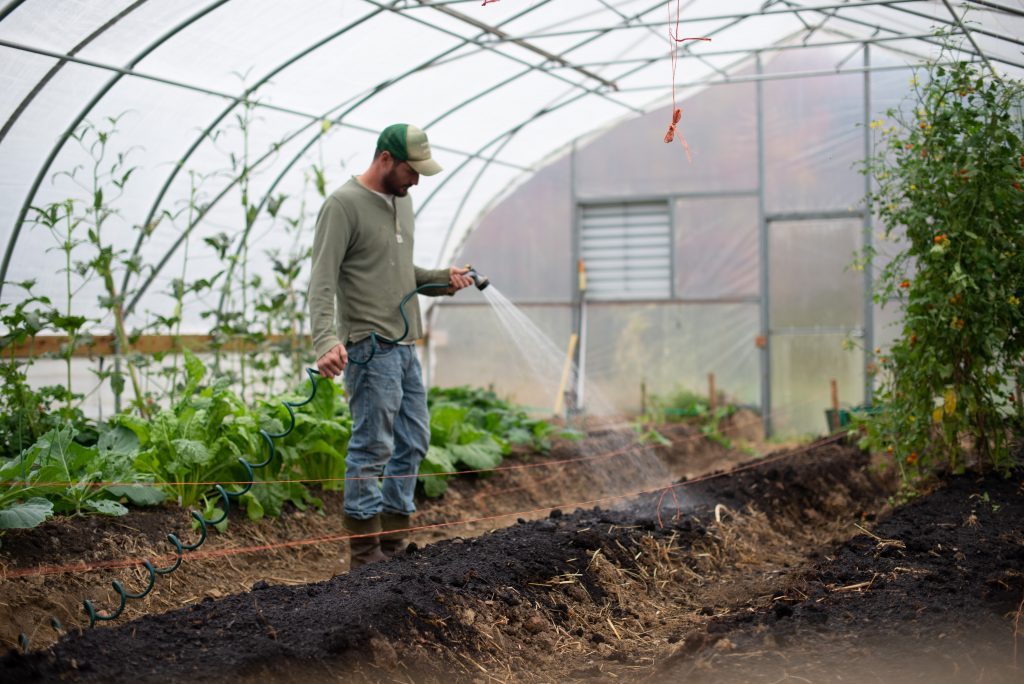The STEPPING UP project was a 3-year EPSRC funded collaboration between researchers at eight universities and research institutes across the UK. We undertook research to understand the interactions between water, energy and food (WEF), and how innovations across these systems could be built upon to deliver a step-change towards sustainability, in the context of a world responding to climate impacts and policies.
Stepping Up aimed to understand the processes, implications and challenges of scaling up innovations in the water-energy-food nexus to achieve transformational change at different scales. We used a mixed method approach, consisting of quantitative and qualitative modelling techniques. Recognising the critical importance of a transdisciplinary approach, we also worked extensively with a wide range of stakeholders to develop insights into the enablers and constraints of up-scaling nexus-innovations in the UK.
Overall project findings:
Joined-up research can reveal positive, but also negative impacts of future policy decisions. Collecting and examining data, engaging stakeholders and mapping out scenarios across the nexus of water, energy and food can highlight the unintended negative consequences of possible future policies as well as the perceived benefits and these must be accounted for within the decision-making process.
Blurred boundaries between sectors signal a need for more integrated planning and management to tackle environmental challenges. There needs to be wider acceptance that boundaries between energy, water and food systems are increasingly blurred, both physically and politically. Analysis across these boundaries allows for greater understanding of how innovations may or may not work. Adaptive forms of governance can also help, as can a multi-stage decision making process.
Responses to global environmental challenges must consider a local social, political and physical context. Policymakers and organisations must ensure these are factored into decision-making to ensure the successful uptake and sustainable development of innovations designed to respond to environmental challenges.
“One size fits all” solutions are unlikely to achieve sustained success. Designing context-specific solutions to environmental problems flexible enough to adapt as conditions and circumstances change may be complex and challenging for policymakers, but it offers a more sustainable pathway than the “one size fits all” approach often adopted today.
Stakeholder engagement is critical when seeking solutions to social and environmental challenges. Giving a range of stakeholders opportunities to reflect, challenge and contribute throughout a decision-making process is key to creating a framework that encompasses a wider context, delivers realistic insights and avoids the common prioritisation of financial concerns that can stifle innovation.
Good decision-making requires reflexivity to manage complexity and uncertainty. An awareness of the extent to which policy- and decision making within one area of the water-energy-food nexus can impact other areas can help to mitigate and manage unintended consequences of those decisions. To support a step-change in sustainability, governance must find space for continuous and transdisciplinary reflection.
Relationships between producers, consumers and the environment matter. For an innovation to be up-scaled, there is a need to reconfigure systems of production, provision and consumption to create space for new emergent systems. This raises questions over risk, justice, equality, prosperity and societal wellbeing that researchers and decision makers must engage with.
To be sustainable, change must be made across multiple domains. In order to maximise the potential benefits of innovation in the areas of water, food and energy, focus must be on changing socio-tech-environmental conditions in multiple domains.
Publications:
Larkin, A., Hoolohan, C., Soutar, I., McLachlan, C., Pregnolato, M,, McLeod, K. and Suckling, J., Messy but meaningful – how to make interdisciplinary water-energy-food-environment research more influential, Policy@Manchester blog.
Hoolohan, C., Larkin, A., McLachlan, C., et al., 2018, Engaging stakeholders in research to address water–energy–food (WEF) nexus challenges, Sustain Sci
Hoolohan, C., Soutar, I., Suckling, J., Druckman, A., Larkin, A., & McLachlan, C. Stepping‐up innovations in the water–energy–food nexus: A case study of anaerobic digestion in the UK, 2018, The Geog. Journal
Hoolohan, C. McLachlan, C. Larkin, A , ‘Aha’moments in the water-energy-food nexus: A new morphological scenario method to accelerate sustainable transformation, Technological Forecasting and Social Change, 148, 119712
STEPPING-UP researchers (Larkin and Varga) contributed to this POSTnote on the Water-Energy-Food Nexus. POSTnotes are briefing notes produced by the Parliamentary Office for Science and Technology based on literature reviews and interviews with leading researchers in the field.
Stepping Up Principal Investigator Alice Larkin, along with Co-Investigator Marian Scott organised a special themed section on “Nexus Thinking” in the Geographical Journal, following sessions at the Geographical Society Conference 2016 with its overall theme of Nexus Thinking. The invited papers drawn upon offered insights into the complexity of water-energy-food nexus systems that should improve understanding of how to inform decision‐making, and that can meaningfully address societal grand challenges towards better resource management. Papers include the introduction and a case study on anaerobic digestion from Stepping Up authors:
Scott, M., & Larkin, A., 2019, Geography and the water-energy-food nexus: an introduction, The Geographical Journal, https://doi.org/10.1111/geoj.12331
Hoolohan, C., Soutar, I., Suckling, J., Druckman, A., Larkin, A., & McLachlan, C. Stepping-Up innovations in the water-energy-food nexus: a case study of anaerobic digestion in the UK, 2019, The Geog. Journal, https://doi.org/10.1111/geoj.12259








